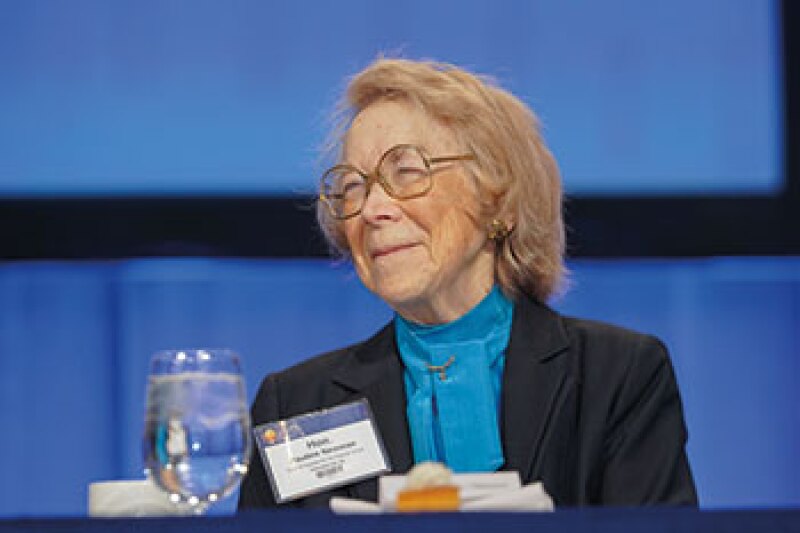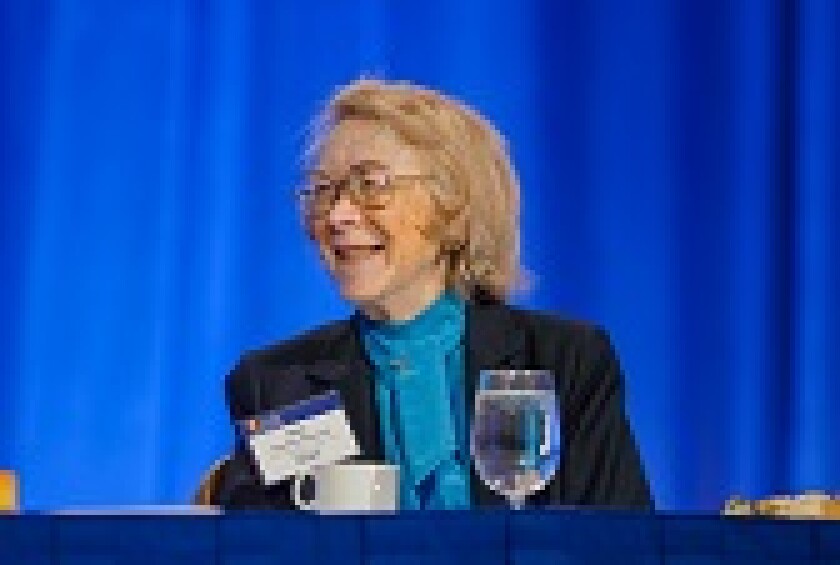
When Pauline Newman - one of our 50 most influential people in IP - became the first judge directly appointed to the Federal Circuit in 1984, she was already well-established as a patent expert. With an MA in pure science from Columbia and a PhD in chemistry from Yale, she had worked as a research scientist at American Cyanamid and as in-house counsel and IP licensing director at FMC Corp for 30 years.
Since then, Newman has become known as the Federal Circuit's "great dissenter" in her 34 years on the bench. While the pure number of her dissents – 275, at last count – make her the most prolific dissenter in the court's history, Newman herself minimises that reputation. "My dissents are not nearly as regular as some suggest," she tells Managing IP. "As a judge, I've decided some 8,500 appeals – about 250 cases per year, for 34 years; most of my decisions are the court's decisions, not dissents."
When placed in context of her 34-year tenure at the court, her dissents may seem less radical. Still, they play an important role. "When my view differs from that of my colleagues, and the difference is important to the law and the outcome of the case, I believe it's my judicial obligation to speak out, and to explain," Newman says.
|
|
"My dissents are not nearly as regular as some suggest” |
|
|
While the majority opinion becomes law, Newman's dissenting opinions have been particularly influential because they often prevail long-term, either through an en banc review at the Federal Circuit, or at the Supreme Court. For example, the Supreme Court's 2005 Merck v Integra decision overturned the Federal Circuit's decision, and explicitly referenced Newman's dissent in its reasoning.
As the longest-serving judge on the court, Newman is in a unique position to comment on how its role has changed over time. "The major change is in the complexity of the issues," she says. "It appears that the easy questions have been answered, and the disputes that come to court test the boundaries of the law." She attributes this to "the increased complexity of technology, the high stakes, and the creativity of litigators."
Another important change is the increasing focus on patent appeals. When the Federal Circuit was formed in 1982, patent cases accounted for just 14% of its workload. This year, patent appeals from the USPTO, district courts, and the International Trade Commission made up two thirds of the Federal Circuit's caseload. Additionally, Newman observes that "the new systems of PTO and judicial review of issued patents involve the court more directly in the details of technology as well as PTO examination practices."
Some have argued that this patent focus has led the court to be overly specialised and patent-friendly. In response, Newman says the court could do with "more specialisation, not less," and points to the fact that "some recent judicial decisions are so anti-patent as to adversely affect scientific and technological discovery and commercialisation, particularly in fields with high research and development costs."
Going forward, Newman is most concerned about how the US patent system has weakened. "The United States has taken a dive in the ranking of innovative industrial nations," she says. "This warrants understanding at the highest levels … The scariest issue would be if we do nothing to determine whether change is needed – in law, in policy, in practice – in view of the dramatic potential of today's science and technology, and the national interest in achieving that potential."
She praises the USPTO's "superb leadership," but criticises courts for "the unpredictability and expense of litigation, to the extent that the investment incentive is diminished." Newman notes that a balance between invention, investment, commercial activity, and competition is critical and complicated, and ultimately the courts' responsibility. "We are at the fulcrum of this balance, within statutory bounds," she says. "The future is in our hands; we cannot be complacent."
Finding the right balance is a daunting task, but Newman recommends a place to start: an advisory committee on industrial innovation. President Carter created such a committee in 1979. "It's time for a repeat, for much has changed in technology, policy, public attitudes, and law," she says. "There is no room for second-best."










